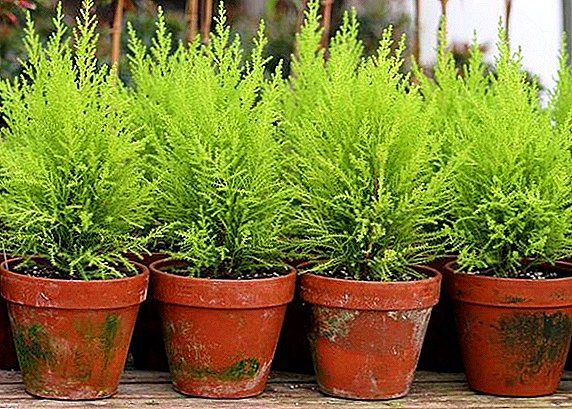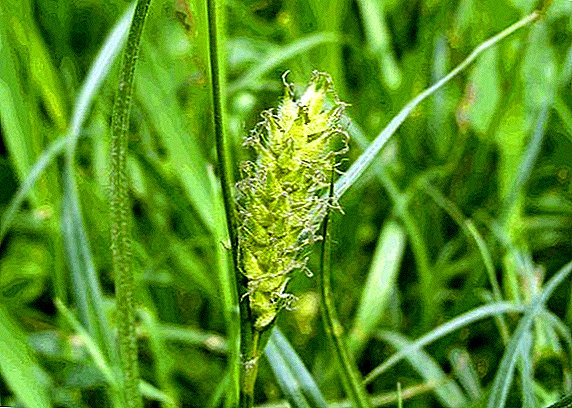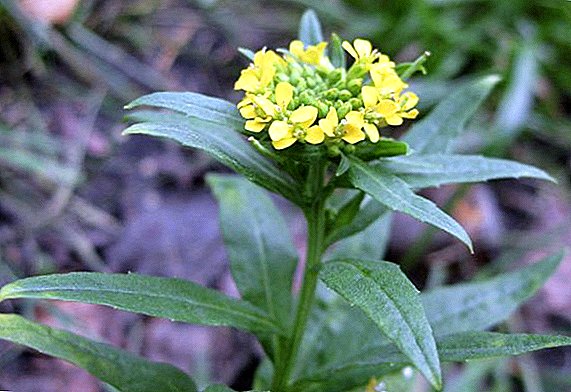
In cooking, the vegetable herb dill has been used as an aromatic spice since ancient times. The well-known seasoning is outwardly so similar to the less famous fennel that many cooks cannot distinguish them, taking fennel as fennel.
In fact, they have many differences, and affect the human body in different ways. In this article we will consider in detail what the similarities and differences between fennel and dill. We will study in more detail the chemical composition and characteristics of the effect of plants on the human body.
Is it the same or not?
The upper elevated parts of these fragrant herbs are very similar in appearance. Both types of herbaceous plants belong to the same family of Umbrella, used in cooking and traditional medicine, but it is not a single plant.
Plant similarity
- Preparations based on fennel seeds and dill are used as a mild expectorant for bronchitis, pneumonia and whooping cough; improve the work of the digestive system.
- These herbs are successfully used for treatment in the form of tinctures and decoctions for flatulence and unstable intestinal work in infants.
Why are they confused?
 To confuse plants, using only external signs, it is possible during planting seeds and at a young age.Both species grow well in vegetable gardens and household plots, and when they are visually inspected, they have similar elements:
To confuse plants, using only external signs, it is possible during planting seeds and at a young age.Both species grow well in vegetable gardens and household plots, and when they are visually inspected, they have similar elements:
- Two types of spices unites one family - Umbrella.
- Their feathery green leaves and numerous inflorescences, gathered in umbrellas, look almost the same.
- Adult stalks in both species reach a height of 1-2 m.
- Greens are widely used in cooking in the preparation of meat, fish and vegetable dishes.
Dill water, which is sold in a pharmacy, to prepare for the normalization of the intestinal function in babies on the basis of fennel seeds.
Otherwise, these spicy herbs have a lot of differences: cultures have different chemical composition, therefore their influence on human organs occurs in different ways.
What is different in appearance?
A closer look at the plants can easily notice significant differences:
- The center stem of dill is hollow inside and does not exceed 1.2m in height. At that time, as fennel quickly grows up to 2-meter height and strongly bushes at the base (fennel has a bare stem dotted with individual leaves).
- Fennel is a two-year plant, and dill is an annual.
- The obvious differences are noticeable when comparing seeds: dill has small flat seeds, and the fruits of fennel reach sizes up to 10 mm in length.
- Their flavor and taste properties are completely different: dill has a specific taste, unlike other spicy herbs; taste of fennel sweet with a slight bitterness. The smell leaves no doubt that these are different plants: dill is a fragrant garden herb, and fennel has an exotic aroma of anise and mint with a bitterness of tarragon.
Fennel growing in the garden requires more attention and care than dill.
Despite the resemblance, dill and fennel are not the same plants. Two different plants, fennel and dill, have a different chemical composition, and have a different effect on the body.
A photo
In the photo below you can see what dill looks like:


And this is fennel:



Benefit
In favor of the plants says that they are accepted by official medicine as medicinal herbs, and are widely used to treat many diseases.
Fennel
Fennel fruits are mainly used for medicinal purposes.:
- Due to the high concentration of essential oils (up to 6%), its seeds are used in the perfume industry, in the production of mouth fresheners and in toothpastes.
- Amino acid helps in the treatment of anemia, as iron is an integral part of the hemoglobin blood molecule.
- With various disorders of the digestive system: bloating, diarrhea, constipation.
- You can overcome the bad breath by chewing fennel seeds.
- The use of medicinal herbs is useful in violation of the menstrual cycle in women.
- Diuretic properties contribute to the elimination of toxins from the body.
We offer to watch a video about the beneficial properties of fennel:
Dill
 Dill is known to mankind since ancient times. In ancient Rome, fragrant twigs were inserted into wedding bouquets for girls. Nowadays, dill is known as a popular gastronomic seasoning and a powerful source of vitamins. Dill seeds contain trace elements:
Dill is known to mankind since ancient times. In ancient Rome, fragrant twigs were inserted into wedding bouquets for girls. Nowadays, dill is known as a popular gastronomic seasoning and a powerful source of vitamins. Dill seeds contain trace elements:
- potassium;
- calcium;
- manganese;
- copper;
- zinc.
The calcium content in dill significantly exceeds its amount in peas and beans. Green leaves contain a lot of phosphorus and iron, which makes this plant useful for digestion and the cardiovascular system.
We offer to watch a video about the benefits of dill:
What is healthier?
Dill and fennel, each in its own way, bring many benefits to the human body. It is difficult to say which medicinal herb is healthier.. Both plants must include a diet.
Harm and contraindications
Any useful product must be consumed in reasonable quantities.
Have fennel
With excessive use of this culture, the components that make up the essential oils can cause:
- neurotic changes;
- there is rapid breathing;
- palpitations increase.
It is necessary to take grass for medicinal purposes with small doses.gradually increasing them. If there are negative changes in well-being: nausea, dizziness or diarrhea, you should immediately stop using the medication and seek advice from a doctor.
Dill
It is not recommended to use dill in large quantities for violations of the nervous system. The components included in its composition, can cause addiction of the organism, which leads to the need to increase the dose of their consumption:
 For example, carotene affects visual acuity; with the uncontrolled use of spicy greens, the body begins to need a constant increase in the dose of carotene, otherwise visual acuity will decline.
For example, carotene affects visual acuity; with the uncontrolled use of spicy greens, the body begins to need a constant increase in the dose of carotene, otherwise visual acuity will decline.- Dill has diuretic properties, so people with kidney disease should use this green with caution; especially if other diuretic drugs are taken - this can lead to dehydration.
- Grass stimulates the stomach and intestines; As a result of habituation without using a green stimulator, malfunctions of the digestive system can be observed.
What is the difference, what is common and which spice is more useful?
The differences between these fragrant herbs are determined by the chemical composition, medical indications for use, they smell differently. Due to the differences in the composition of the plant differently affect the organs. In fennel, they use a crispy aromatic rhizome as food, and dill roots are unsuitable for anything.
Combines dill and fennel using both herbs in cooking and apparently young plants are very similar.
By all accounts, fennel contains more medicinal and nutrients than dill. Therefore, you can easily replace dill with fennel, both in medicine and in cooking (the taste and smell of the dish will only improve), and fennel cannot be replaced with dill: the replacement will not bring the desired result. If you can choose, then fennel will be much more useful than dill.
How is the scope?
In fennel, nutrients are contained in all parts of the plant: in the root, leaves, seeds. It is used:
- in medicine;
- in cooking;
- due to the content of essential oils in the perfume industry.
Dill contains nutrients in greens and seeds. It is used in folk medicine, in cooking.
Is it possible to replace one plant with another?
 It should be noted one important feature, in all respects fennel contains more medicinal and nutrients than dill.
It should be noted one important feature, in all respects fennel contains more medicinal and nutrients than dill.
therefore it is easy to replace fennel with fennel, both in medicine and in cooking (the taste and smell of the dish will only improve).
Fennel can not be replaced by dill, scientists noted that the replacement will not bring the desired result. If you can choose, then fennel will be much more useful than dill.
How to change the taste of the dish?
These plants have a different taste and aroma. Fennel has a mint-anise flavor with a slight bitterness. Dill has a rich aroma and sweetish spicy notes.
Is it possible to mix?
Dill and fennel go well together. When preserved, a mixture of flavors will give spice to vegetables. The taste of fresh vegetable salad will only benefit if you put both herbs. To enhance the lactation of nursing mothers, doctors recommend taking fees from different herbs.
If the drug is taken to increase the amount of breast milk, the benefits of a mixture of fennel seeds and dill will increase.
Dill and fennel - sources of vitamins and trace elements needed by man. With proper use of these plants, they will not bring any harm to the body.


 For example, carotene affects visual acuity; with the uncontrolled use of spicy greens, the body begins to need a constant increase in the dose of carotene, otherwise visual acuity will decline.
For example, carotene affects visual acuity; with the uncontrolled use of spicy greens, the body begins to need a constant increase in the dose of carotene, otherwise visual acuity will decline.









